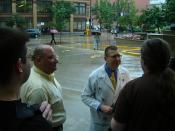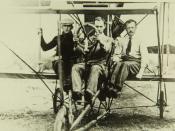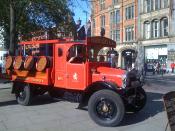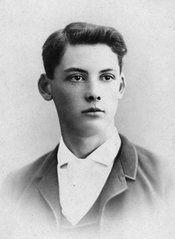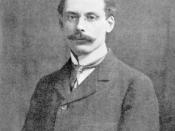Richard Cory, a poem by Edward Arlington Robinson, deals with an extended description of a man, a very rich, successful man. The poem deals with the common theme of appearance versus reality. Through the use of setting, action and the speaker the meaning is reviled. A look at each of the stanzas of the poem is important to see how Robinson creates the meaning of the poem and how each stanza relates to the meaning.
In the first stanza, the speaker describes Richard Cory and contrasts him to the other people in the poem, who he refers to as "we." In lines 1 and 2, when the speaker uses the words "we people on the pavement looked at him," we see a contrast between Richard Cory and the "people." The second stanza is wholly about Richard Cory. The speaker adds admiration to his glowing description of Richard Cory in the first stanza.
Then ironically, in the third stanza, there is the suggestion that the speaker is envious of Richard Cory.
However, the poem takes a sudden, dark twist in the last stanza. Robinson does this by first revealing a little more about the speaker. In the first two lines of the fourth stanza, the narrator says: "So on we worked, and waited for the light"æ And went without meat and cursed the bread . . .." This is obviously a reference to the narrator's own poor financial and social state. For the speaker, work is a place of darkness and hardship where you simple "wait for the light." For the speaker, there is no meat to eat at dinnertime, and after so many meals without it, you begin to curse the cheap bread that you do have to eat. This is a sharp contrast to the life of Richard Cory, and the reader now sees that the sparker is a less fortunate "We." Finally, the poem reaches an unexpected conclusion, in which the audience is jolted into remembering the difference between appearance on the one hand, and reality on the other. In the last two lines of the last stanza, with a minimum of detail and no explanation Robinson simply tells how Cory "...one calm summer night, Went home and put a bullet through his head." With that, the poem ends. Though Richard Cory appears to be better off than "we people on the pavement," in reality he clearly must have his share of life's burdens because he kills himself in the end.

